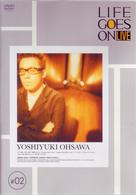Full Description
The Bene Israel are a Jewish community from western India who, over centuries, developed a distinctive identity in relation to other Jewish and non-Jewish communities, translating their sounds, words, and practices to have uniquely Marathi Jewish meanings. Some men sing Marathi Jewish songs, but over the past half century, women have assumed the important cultural role of stewarding these songs for the future. As author Anna C. Schultz demonstrates, the Bene Israel women are translators who creatively mediate the worlds around them through song; while they may not always be visible, they are audible, and this book amplifies their relational soundings.
Schultz explores sonic translation among the Bene Israel through the metaphor of the echo: a resonant, transformative, relational phenomenon. The voices of Bene Israel women today, like Ovid's Echo, resonate empathically with loved ones they have survived, and, faintly, with those they never knew. Singing this repertoire teaches singers and listeners not only how to be Jewish, but how to be Bene Israel. It also fosters sociality, providing a medium through which women echo one another, sharing cultural expertise while securing affective ties. But women also echo with one another, that is, they collectively and audibly translate sacred texts as embodied experience in the here and now. Women's repertories and practices were shaped in a richly diverse context, colored by interlinguistic translation between Hebrew, Marathi, Hindi, and English, as well as by other forms of cultural translation: translations from Cochin and Baghdadi Jewish to Bene Israel practice, Christian and Hindu religious discourse to Jewish religious discourse, from one ritual context to another, from men to women, from the written page to embodied performance, and from the past to the present.








